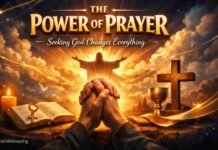 Leading a Bible study is an enriching experience that allows you to delve deeper into the Scriptures while fostering a community of learning and faith. This guide will help you navigate the complexities of organizing a Bible study and suggest a sequence for reading the Bible that enhances understanding and retention.
Leading a Bible study is an enriching experience that allows you to delve deeper into the Scriptures while fostering a community of learning and faith. This guide will help you navigate the complexities of organizing a Bible study and suggest a sequence for reading the Bible that enhances understanding and retention.
How to Prepare for Leading a Bible Study
Understanding Your Audience
Begin by assessing the needs and spiritual maturity of your group members. This understanding will guide you in selecting the appropriate scriptures and teaching methods.
Selecting the Right Materials
Discuss the importance of choosing study materials, such as study Bibles, commentaries, and other resources. Highlight sources like downloadable guides (“How to lead a Bible study PDF”) which can be particularly helpful for beginners.
Structuring Your Bible Study
Starting with Prayer
Emphasize the need to begin each session with prayer, seeking wisdom and understanding from the Holy Spirit.
Choosing a Format that Fits
Explore various formats such as lecture-based, discussion-oriented, or a mix. Include creative ideas like using multimedia or interactive activities to engage different learning styles.
Frequent Breaks and Interaction
Suggest incorporating breaks and interactive segments to keep the group engaged, especially in a lengthy session.
Conducting the Study
For Different Groups
Provide tailored advice on leading studies for specific groups, such as youth, adults, or a Catholic Bible study, addressing unique challenges and opportunities each group presents.
Keeping the Discussion On Track
Offer strategies for managing group dynamics and ensuring that the study remains focused on the topic.
Encouraging Participation
Discuss ways to encourage silent members to participate, ensuring a richer group interaction.
What Order to Read the Bible In
Chronological Order
Present the benefits of reading the Bible in the order of events as they occurred historically, which can help in understanding the continuous story of the Bible.
Thematic Order
Explain a thematic approach to reading the Bible, which involves grouping scriptures by topic or theme.
Old and New Testament Parallel
Suggest a reading plan that alternates between the Old and New Testaments to highlight the fulfillment of prophecies and connections between the Testaments.
Starting Your Own Bible Study Group
Practical Steps for Beginners
Outline practical steps for someone looking to start their first Bible study group, from finding a venue to inviting participants and setting a schedule.
Resources and Support
Recommend resources for further learning and places where leaders can get support, such as online forums (“How to lead a Bible study Reddit”) and local church networks.
Conclusion
Recap the key points discussed and encourage your readers to take the leap into leading their own Bible study. Emphasize that the journey of studying the Bible is as rewarding as it is enlightening.
Call to Action: Encourage readers to visit whatbiblesaying.com for more resources and guidance on their spiritual journey.












